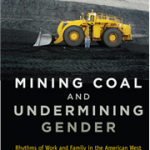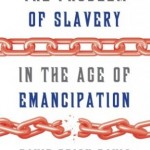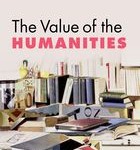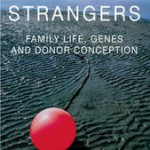This week, our #PublicationJihad continues with Allegra’s own currated list of books covering a large spectrum of themes: from the history of international law, to slavery, the European crisis, the transformations of the notion of ‘family’ and women’s labour in the US mining industry. We hope some of you will find inspiration…and if you feel like reviewing any of these books (or any other you find relevant), do not hesitate to contact: review@allegralaboratory.net!
 The Future of Europe: Towards a Two-Speed EU? Jean-Claude Piris (Cambridge: Cambribge University Press, 2011).
The Future of Europe: Towards a Two-Speed EU? Jean-Claude Piris (Cambridge: Cambribge University Press, 2011).
The European Union is in crisis. Public unease with the project, Euro problems and dysfunctional institutions give rise to the real danger that the European Union will become increasing irrelevant just as its member states face more and more challenges of a globalised world. Jean-Claude Piris, a leading figure in the conception and drafting of the EU’s legal structures, tackles the issues head on with a sense of urgency and with candour. The book works through the options available in light of the economic and political climate, assessing their effectiveness. By so doing, the author reaches the (for some) radical conclusion that the solution is to permit ‘two-speed’ development: allowing an inner core to move towards closer economic and political union, which will protect the Union as a whole. Compelling, critical and current, this book is essential reading for all those interested in the future of Europe.
 Mining Coal and Undermining Gender:Rhythms of Work and Family in the American West. Jessica Smith Rolston (Rutgers University Press, 2014).
Mining Coal and Undermining Gender:Rhythms of Work and Family in the American West. Jessica Smith Rolston (Rutgers University Press, 2014).
Though mining is an infamously masculine industry, women make up 20 percent of all production crews in Wyoming’s Powder River Basin—the largest coal-producing region in the United States. How do these women fit into a working culture supposedly hostile to females? At a time when the Appalachian region continues to dominate discussion of mining culture, this book provides a very different and unexpected view—of how miners live and work together, and of how their lives and work reconfigure ideas of gender and kinship.
 The Problem of Slavery in the Age of Emancipation. David Brion Davis (Knopf, 2014).
The Problem of Slavery in the Age of Emancipation. David Brion Davis (Knopf, 2014).
David Brion Davis is one of the foremost historians of the twentieth century, winner of the Pulitzer Prize, the National Book Award, the Bancroft Prize, and nearly every award given by the historical profession. Now, with The Problem of Slavery in the Age of Emancipation, Davis brings his staggeringly ambitious, prizewinning trilogy on slavery in Western culture to a close. Once again, Davis offers original and penetrating insights into what slavery and emancipation meant to Americans. He vividly portrays the dehumanizing impact of slavery, as well as the generally unrecognized importance of freed slaves to abolition. Most of all, Davis presents the age of emancipation as a model for reform and as probably the greatest landmark of willed moral progress in human history
 The Value of the Humanities. Helen Small (Oxford: Oxford University Press, 2013)
The Value of the Humanities. Helen Small (Oxford: Oxford University Press, 2013)
The Value of the Humanities provides a critical account of the principal arguments used to defend the value of the Humanities. Tough-minded, alert to changing historical conditions for argument and changing styles of rhetoric, it promises to sharpen the terms of the public debate.
 Relative Strangers: Family Life, Genes and Donor Conception. Petra Nordqvist and Carol Smart (Palgrave Macmillan, 2014)
Relative Strangers: Family Life, Genes and Donor Conception. Petra Nordqvist and Carol Smart (Palgrave Macmillan, 2014)
What does it mean to have a child born through donor conception? Does it mean different things for heterosexual parents and lesbian parents? What is it like for the ‘non-genetic’ parent? How do grandparents feel about having a grandchild who is conceived with the help of an egg, sperm or embryo donor? Since 1991 more than 35,000 children have been born in the UK as a result of donor conception. This means that more and more families are facing the issue of incorporating ‘relative strangers’ into their families. In this path breaking book, the authors explore the lived reality of donor conception in families by using in-depth interviews with parents and grandparents of donor conceived children.
 The Son also Rises: Surnames and the History of Social Mobility. Gregory Clark with Neil Cummins, Yu Hao and Daniel Diaz Vidal (Princeton: Princeton University Press, 2014).
The Son also Rises: Surnames and the History of Social Mobility. Gregory Clark with Neil Cummins, Yu Hao and Daniel Diaz Vidal (Princeton: Princeton University Press, 2014).
 Pills for the Poorest: An Exploration of TRIPS and Access to Medication in Sub-Saharan Africa. Emilie Cloatre (Palgrave McMillan, 2013).
Pills for the Poorest: An Exploration of TRIPS and Access to Medication in Sub-Saharan Africa. Emilie Cloatre (Palgrave McMillan, 2013).




